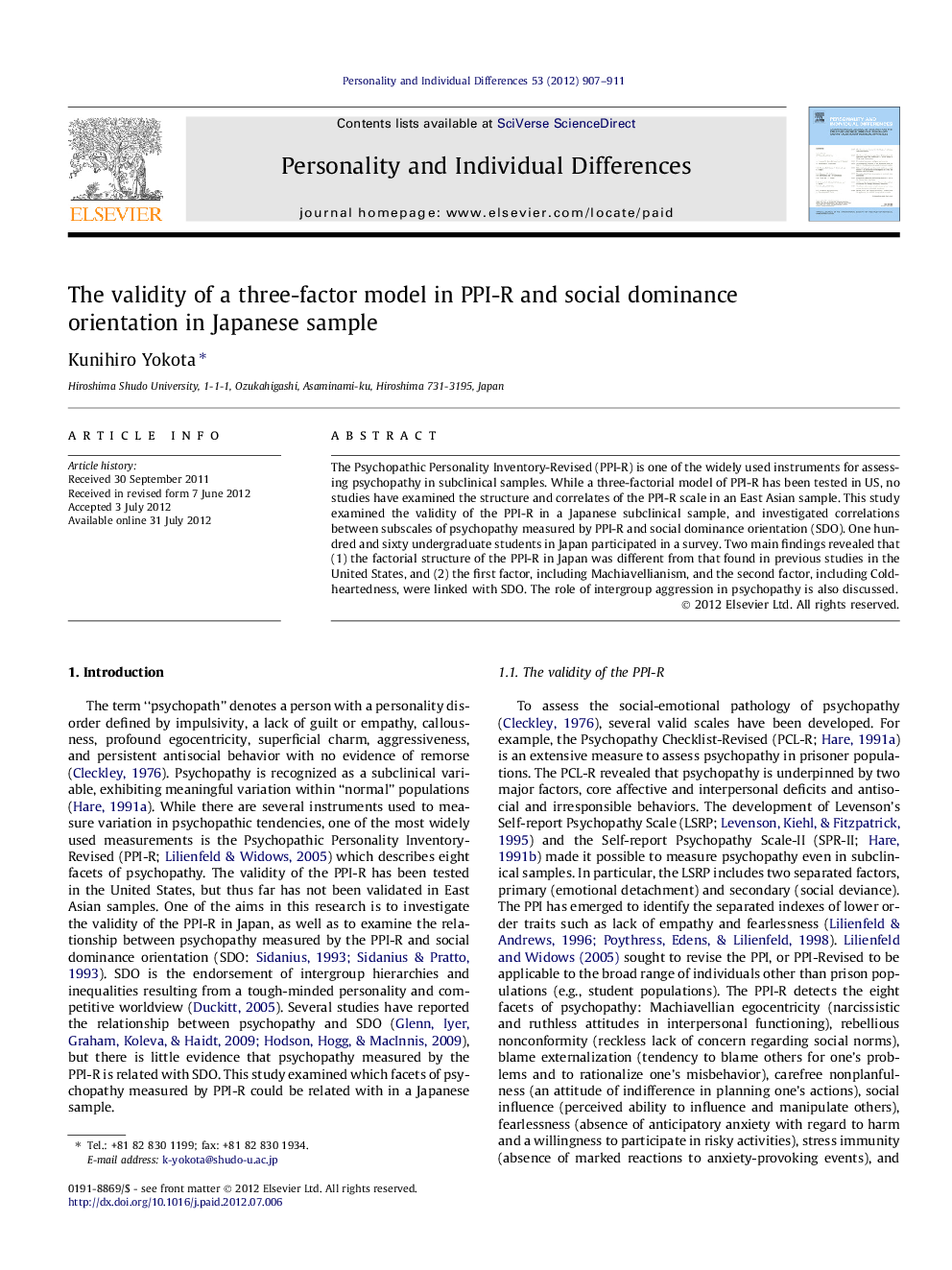| کد مقاله | کد نشریه | سال انتشار | مقاله انگلیسی | نسخه تمام متن |
|---|---|---|---|---|
| 891388 | 914037 | 2012 | 5 صفحه PDF | دانلود رایگان |

The Psychopathic Personality Inventory-Revised (PPI-R) is one of the widely used instruments for assessing psychopathy in subclinical samples. While a three-factorial model of PPI-R has been tested in US, no studies have examined the structure and correlates of the PPI-R scale in an East Asian sample. This study examined the validity of the PPI-R in a Japanese subclinical sample, and investigated correlations between subscales of psychopathy measured by PPI-R and social dominance orientation (SDO). One hundred and sixty undergraduate students in Japan participated in a survey. Two main findings revealed that (1) the factorial structure of the PPI-R in Japan was different from that found in previous studies in the United States, and (2) the first factor, including Machiavellianism, and the second factor, including Coldheartedness, were linked with SDO. The role of intergroup aggression in psychopathy is also discussed.
► This study examined the validity of PPI-R and social dominance orientation in Japan.
► Cultural difference in a three-factorial structure in PPI-R was found.
► Psychopathy was positively related with social dominance orientation.
► The intergroup dominance strategy in psychopath was “charismatic” and “coldhearted”.
Journal: Personality and Individual Differences - Volume 53, Issue 7, November 2012, Pages 907–911